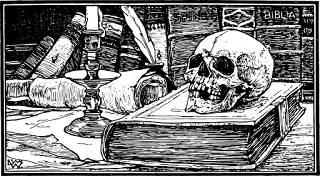Stephen King curiosities
Stephen and his wife Tabitha own three radio stations. They are the owners of Zone Radio, a company that manages their three radio stations.
At the age of four, he witnessed the death of a friend while they were playing on the train tracks. Stephen returned home telling his mother that the boy was hit by the train
King was hit by a pickup truck not far from his home in Maine in 1999. The incident left King with a collapsed lung, multiple fractures in his hip and leg, and a head injury.
Among the curiosities of Stephen King is the fact that, although he has written several scripts for adaptations of his works, the author has only directed one film in his entire career and decided he would never do it again.
Stephen King dusts off his electric guitar from time to time, and the same fingers that once wrote about the rage of Cujo or the paranoia of Annie in Misery now compose notes. In fact, he had a band in which he played guitar called Rock Bottom Remainders. He also wrote a musical about ghosts with a friend.
Stephen King, John Mellencamp, and T Bone Burnett collaborated on a musical, Ghost Brothers of Darkland County, which debuted in 2012. The story is based on a house that Stephen bought in Indiana. Legend has it that three brothers were playing in the woods and accidentally shot one of them. The survivors got into a car to seek help but crashed into a tree and died. The three now haunt the woods near the mentioned house.
The writer stated in an interview, 'The first time I saw The Blair Witch Project, I was in the hospital and I was on medication. My son brought a VHS tape and said, 'You have to see this.' Halfway through, I said, 'Turn it off, it's too strange.
Stephen King's wife has also been a writer since a young age. In fact, they both attended a creative writing course in college, where they met. That's why it was no surprise that their children, Joe Hill and Owen Philip, are also writers.
--
Curiosidades de Stephen King
Stephen y su esposa Tabitha poseen tres estaciones de radio, ellos son dueños de Zone Radio, una compañía que sirve para dirigir sus tres estaciones de radio.
A sus cuatro años presencio la muerte de un amigo mientras jugaban en las vias del tren. Stephen volvio a su casa diciendole a la madre que el muchacho fue atropellado por el tren
King fue atropellado por una camioneta no muy lejos de su casa en Maine en 1999. El incidente dejó a King con un pulmón colapsado, múltiples fracturas en la cadera, en una pierna, y una herida en su cabeza.
Dentro de las curiosidades de Stephen King tenemos el hecho de que, aunque ha escrito varios guiones de las adaptaciones de sus obras, el autor tan solo ha dirigido una película en toda su carrera, y decidió que nunca más lo volvería a hacer.
Stephen King desempolva de vez en cuando su guitarra eléctrica y los mismos dedos que antes escribían sobre la rabia de Cujo o sobre la paranoia de Annie en Misery, ahora componen notas. De hecho, tuvo una banda en la cual tocaba la guitarra, llamada Rock Bottom Remainders. Además escribió junto a un amigo un musical sobre fantasmas.
Stephen King, John Mellencamp y T Bone Burnett colaboraron en un musical, Ghost Brothers of Darkland County, que tuvo su debut en el 2012. La historia está basada en una casa que Stephen compró en Indiana. Cuenta la leyenda que tres hermanos estaban jugando en el bosque y accidentalmente dispararon a uno de ellos. Los que sobrevivieron se subieron al auto para buscar ayuda, pero chocaron contra un árbol y murieron.
Los tres ahora acechaban en el bosque junto a la casa mencionada.
El escritor declaro en una entrevista "La primera vez que vi El proyecto de la Bruja de Blair estaba en el hospital y estaba drogado. Mi hijo trajo una cinta VHS y me dijo: 'Tienes que ver esto'. A la mitad dije: 'Apágalo, es demasiado extraño'".
Pic by BiancaVanDijk from pixabay - Foto por BiancaVanDijk de pixabay












